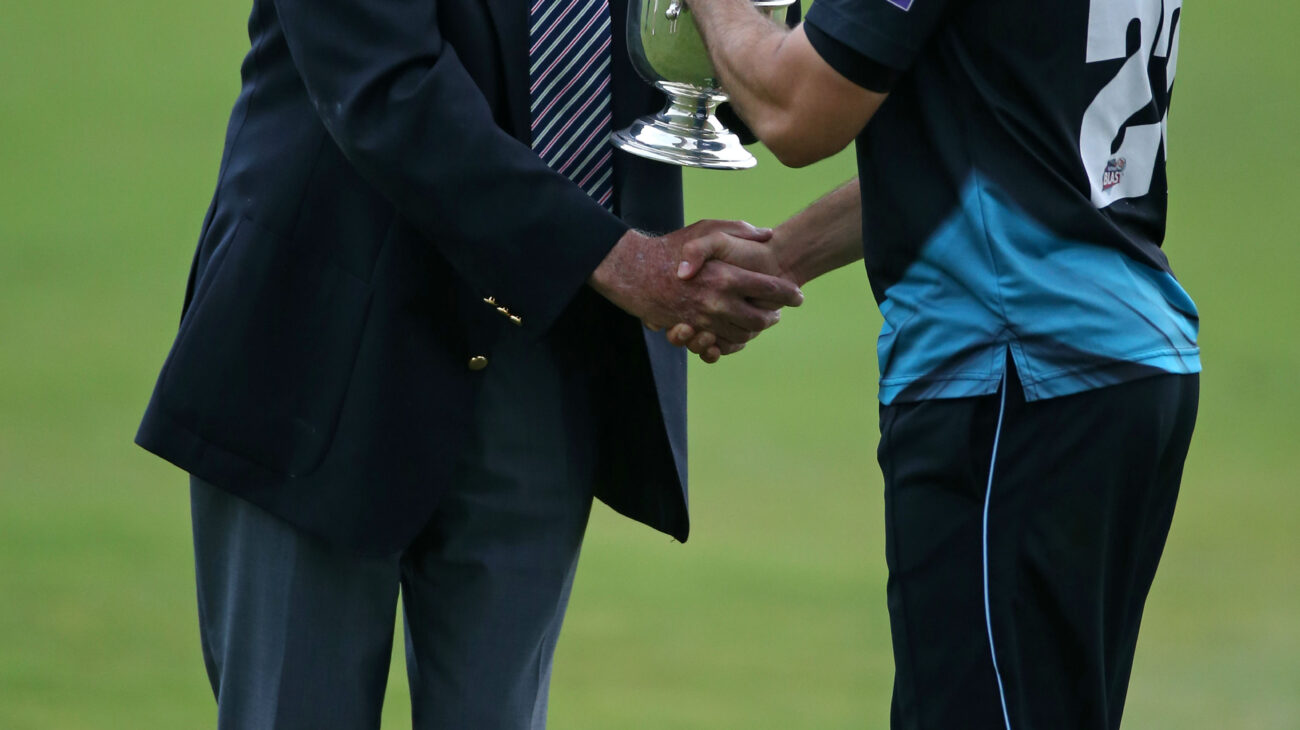It is sixty years ago that Worcestershire CCC legend Norman Gifford made his senior debut for the County.
Norman’s first appearance in Worcestershire’s colours was against Kent in a County Championship match at Tunbridge Wells beginning on June 15, 1960.
The game was over in one day as Kent despite Norman returning 4-63 on his debut, triumphed by an innings.
But Norman would go onto enjoy superb success with Worcestershire, being part of three Championship winning sides, captaining the one in 1974, and earning 15 England Test and two ODI caps.
He ended his career in 1988 with 2068 First Class and 443 List A wickets and in more recent years has aided the County’s up and coming spinners when operating as a part-time spin bowling coach.
Here Norman looks back at his incredible career in a Question & Answer Session.
Question: Norman tell us your very first memories of Worcestershire CCC?
“I came down here for a trial in 1958 and, in those days, there were a lot of people taking part and, after everyone had performed, they picked the people they wanted to keep on for another two days.
“They kept me on, and I did alright. I practiced with all the top players and Worcestershire decided they wanted to offer me a contract, but in those days they couldn’t do that without getting permission from my county of birth, i.e. Lancashire.
“Lancashire wanted to see me before they let me go. They invited me to Old Trafford, I had a net and then played in a Club and Ground game for them at Altrincham Grammar School on a wet wicket that turned.
“I got wickets and they wanted to offer me a contract as well. My dad asked ‘what are you going to do’ and I felt I had a better chance if I came to New Road than if I had stayed at Old Trafford.”
Question: You came to Worcestershire when success was only just around the corner for the team?
“It was an era when the likes of Jack Flavell and Len Coldwell were starting to become one of the premier fast bowling units in the country.
“When I joined there were four or five spinners on the staff – Bob Berry, who played for England, Doug Slade, David Pratt, who went on to play for Notts, Peter Robinson and myself.”
Question: You had to qualify for a year and then in 1960 made your debut at Tunbridge Wells?
“It was a remarkable first game as it was all over in a day! We were bowled out for 25.
“I remember Dick Richardson was having a cigarette and, after another wicket fell, he went in and said ‘leave it there, I’ll have it when I come back.” It was an indication of the sort of wicket it was.
“It was wet through with no grass on it when we started and then a lovely warm day and, as it dried out, it just baked and when the ball pitched on it, it left craters and went all over the place.
“The game started on a Wednesday and I was back in the nets at New Road on the Thursday!”
Question: I gather you learnt a lot from bowling during practice sessions at Tom Graveney?
“One of the best things that happened was Tom joining in 1963. He was a prodigious practiser. He loved it and he batted in the nets as he batted in the middle. There was no mucking around.
“I used to have to bowl at him most mornings and you learn a lot from such experiences. You are thinking ‘If I can contain him in the nets, I can look after myself in the middle’.”
Question: You mentioned that you never felt you started to fully mature as a bowler until you were 25-26?
“The biggest thing you work on first of all is the line that you bowl. If you can bowl a good line, over a period of time you learn the different paces and variations that you can bowl.
“You use your variations being confident that, what you are using, you can actually do. I was the type that tried to build pressure. If you could bowl two maidens and someone like Len Coldwell did the same the other end, then the pressure would have its rewards sometimes.”
Question: You were part of a really good side in the early to mid 1960s.
“We won two Championships and, either side of that, came runners-up and could easily have won four titles in a row as well as reaching two finals at Lord’s including the first one ever.
“It was a good side. The players were gradually improving and coming together. We had some youngsters coming through like Ron Headley and Alan Ormrod to add to the established players plus the introduction of Tom Graveney in 1964 and Basil D’Oliveira the following year.
“It was hard to get in at times and some good players had few opportunities.”
Question: It’s fair to say you were a very competitive player?
“I was. I wasn’t the silent lamb. I used to have a word or two out there in the middle with the opposition.
“It was part of my character.”
Question: In 1964, our first Championship winning year, you were selected to play for England?
“For anyone to get a call-up for their debut at Lord’s was special. It was a rain-affected game.
“If we had been able to play all the way through, I think I would have got a few more wickets. I had three for not very many and then we went off again for rain.
“I was playing against people like Richie Benaud and it was a great experience.
“At that time Derek Underwood was around and, on wet wickets in the UK, it was going to be a struggle to get him out of the side.
“Ray Illingworth was a blessing for me. There were times when the wickets were drier and they were a bit more up and down and he would say ‘I want him to play, not Deadly (Underwood).”
Question: Do you think in another era, when Underwood was not around, you would have played a lot more than 15 Tests.
“I might have had a run like Graeme Swann. It could have happened. I only played one Test where the two of us played that was against Pakistan in Karachi.
“I got wickets, five in the second innings, but that was the only time we were in tandem on the field.
“I got on really well with Derek. We used to have a long chat and still do if I see him. He sometimes comes to the PCA events and we had a big reunion of all the England players at Lord’s three or four winters ago and he was there for that.
“That was a great evening, all the old boys I had played with being there.”
Question: Many players of today’s generation would not have seen uncovered wickets or maybe not even heard of them.
“Because of the challenges uncovered wickets presented, it developed technique for players like Tom Graveney.
“Basil D’Oliveira was another perfect example. He came over from South Africa and had never seen a wet wicket in his life.
“I remember a match at Cheltenham in such conditions when we needed 140 odd and were 15-3 when Graveney and D’Oliveira came together and we never lost another wicket.
“It was great skill and they approached it in different ways. Basil played off the back foot and Tom was all front foot and it was fascinating to see.
“You can’t just play one way. You’ve got to find out what your particular skills are and hone your skills.”
Question: You look at cricket today, and the approach to it from many players, and is it fair to say someone like Daryl Mitchell is a dying breed?
Norman Gifford: “He is, and he reminds me very much of cricketers in that era when I was playing.
“He is and has been a fine player and there cannot have been many better opening batsman in the country during some of that period.
“He has been outstanding for Worcestershire but, of the opening batsman I played with Glenn Turner was a superb player.
“I played most of Glenn’s career at Worcestershire – 14,15 years – and you look at his record and it was superb.
“He could hardly hit the ball off the square when he came here, and he became one of the most destructive players around.
“He has said the John Player League on Sunday afternoons was the making of him and dropping that competition along with splitting the Championship into two divisions, are two of my biggest regrets about cricket.
“In my opinion, any side that finishes top of the Championship should have played everybody.
“But the biggest regret for me was ending the 40 over competition. It attracted brilliant crowds with people packed onto the grass right up to the boundary rope and it was ideal for spectators.
“They would have lunch at home, come down and watch the cricket at two with the kids, be finished by six. I thought when we lost that competition, it was a big, big shame.”
Question: You won the Championship again in 1974 and captained the side?
“We had some good players. Imran Khan was coming through and it was a shame we never kept him.
“If he hadn’t been tempted away by Tony Greig at Sussex, we could have won one or two more Championship titles in that era.
“We had Glenn Turner, a solid batting line-up, a decent bowling attack with Brian Brain, Paul Pridgeon, John Inchmore and Imran, myself and Dolly was still there.
“We could have done it again. It was shame because Imran was really developing then, and we all know what a player he became for his country.”
Question: A lot of people forget that at the age of 44 you captained England in the ODIs?
“We went to Sharjah and played. It was the first experiment with bringing sides together for a short tournament.
“Phil Edmonds was part of our squad, and I rated him as a spinner, and it turned a bit and I remember I got Imran out.
“He always used to say “I can’t play spin”, so I used to spend hours in the nets with him trying to improve that area of his game.
“He looked up after I got him out as if to say, ‘I should have learnt from the work I did with you!’”
Question: You carried on playing first class cricket until the age of 48, ending your career with Warwickshire after leaving Worcestershire?
“When I left here, I was 42 and I thought ‘that was it’ but I had a phone call in the winter from David Brown at Warwickshire and he said “what are you going to do?” and I said ‘I’ll go back to work.’
“He said do you fancy doing a bit for us and that they needed my experience and I was given a good contract and picked up 100 wickets in my first season.
“Bob Willis was captain in my first year and when he packed it in, I was asked to captain. I played with Dennis Amiss, Geoff Humpage, Alvin Kallicharran and it was interesting to see how we as a county had operated and then going to a Test match ground and seeing how they went along.”
Question: You ended up with 2,068 first class wickets, a total unlikely to be reached again?
“With less games, and the wickets not being the same, it will probably never occur again.
“I think there used to be more rough to work with as a spinner and we’ve lost a bit of character out of pitches around the world and in this country.
“You would go to Cheltenham and it would turn square every game.”
Question: Did you learn much off the older professionals – even those in the opposition?
“Most definitely. Early on in my career, there was a game at Grace Road when I bowled something like 23 overs in the first innings at right handers, left handers and I thought I’d bowled alright.
“In those days after the day’s play, you’d go into the bar and have a beer. The senior pros would be at one end of the bar and you’d be with the youngsters at the other end.
“Suddenly there is a tap on my shoulder and it was Tony Lock (England spinner) who was captaining Leicestershire then and he said ‘I think we’d better have a sit-down young man.’
“We sat down, and he talked me through my spell. It was priceless. He’d ask, ‘why did you go over the wicket to the left hander’ and ‘why did you do this and that’.”
Question: Is that the sort of thing you’ve passed on in recent years to people like Ben Twohig?
“Hopefully because when you’ve learnt things, and you’ve been down that road, know what the pitfalls are, you can help other people.
“I still get that buzz from helping the youngsters and passing things on.
“When Ben made his debut at The Oval a couple of years ago, I was delighted for him. I’ve seen him develop from as a 15-year-old, but it takes time.
“He works hard and is a character, a bit of a Phil Tufnell sort of character but he can bowl, is a good fielder and decent batsman.”


















































